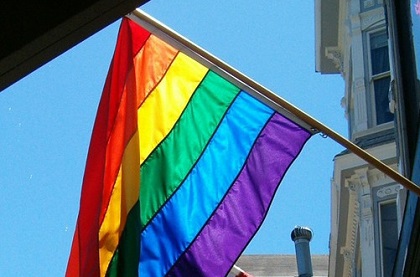Is the definition of marriage an important enough issue to split a church?
As theological debates on sexuality and marriage become more and more central, many Christian denominations are being asked to clarify their views.
MADRID · 30 JUNE 2017 · 10:37 CET

A pro-LGBT draft law in Spain which could severely punish schools, companies and media who do not promote “sexual diversity has prompted new questions among evangelical Christians in the country.
Whereas most evangelicals express their worries about the restriction of freedom of speech and religious freedom, there is a minority of Christians who have publicly expressed their identification with gender ideology, asking that marriage be redefined.
In Finland, the debate inside the Lutheran Church has been going on for months, and evangelical theologians have been put under pressure for defending biblical views.
The old French Reformed churches voted to start blessing same-sex marriages in 2015. Months later, a group of theologically evangelical Protestant ministers set up “Attestants” groups who defend the authority of the Bible’s teachings on sexuality and other issues. Meanwhile, the influence of the National Evangelical Council of France (CNEF), which unites most evangelicals (Pentecostal, Brethren, Baptists…) has grown by holding to a position which differentiates them from liberal groups.
In Belgium, the positions have also been clarified in the last years.

The Church of England is also in the midst of an ongoing debate, with Bible-believing Christians who experience same-sex attraction saying they feel “bullied” by LGBT campaigners for wanting to hold on the historic understanding of marriage they read in the Bible. Transgender ceremonies are also up for discussion.
The Gafcon, which unites the non-liberal Anglican churches in the world (a majority), has been very clear on making the defence of marriage a priority. This included a controversial nomination of a “missionary bishop” in England.
Meanwhile the Scottish Episcopal Church has just approved same-sex marriages, with other churches saying their departure from the biblical principles will only empty their churches more.
In Eastern Europe, the debate about homosexuality has not been a major theological issue up till now, with countries like Romania ruling out same-sex marriage.
THREE ARTICLES WE RECOMMEND
To know more about our position as Evangelical Focus on gender ideology and the Bible, read the following articles:
- A Better Story: Re-imagining the Biblical Vision for Sex and Marriage, by Glynn Harrison
- The Tsunami Gender, by Rob and Claire Smith.
- Gender: Where Next? by Christopher Townsend.
WHAT DO YOU BELIEVE?
Some Christian leaders have expressed their willingness to work with groups who accept the practice of homosexuality as acceptable, arguing it is not a core issue of the Christian gospel.
Many other Christians believe that the Bible’s approach to sexuality, marriage and family is key to Christian doctrine, and therefore no compromises should be made.
What is your opinion? Vote here:
Published in: Evangelical Focus - Editorial - Is the definition of marriage an important enough issue to split a church?
